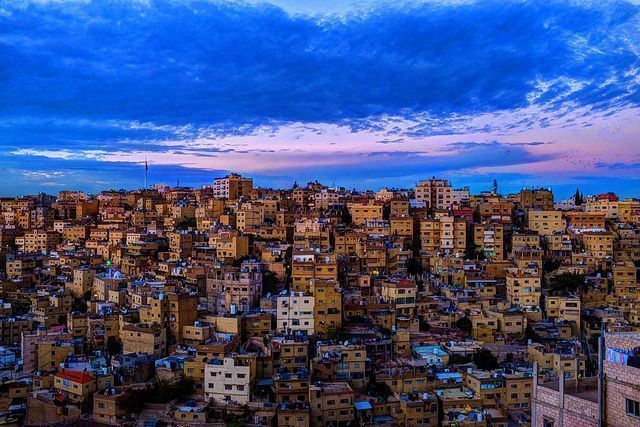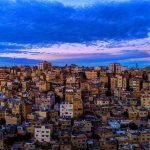
An international insight – altruism in Jordan
 A local bus station in Jordan’s capital city of Amman served as the meeting point for myself and twelve others from across the globe. We would then take a 30 minute drive to the residential area of Al Zarqa – Jordan’s second city and our home for the next 2 weeks.
A local bus station in Jordan’s capital city of Amman served as the meeting point for myself and twelve others from across the globe. We would then take a 30 minute drive to the residential area of Al Zarqa – Jordan’s second city and our home for the next 2 weeks.
We were to spend time with different charitable organisations, lend a hand where we could and share what we had learnt on our return.
Al Zarqa is a city whose recent history is characterised by immigration. Over 60% of the population are displaced Palestinian refugees, added to more recently by families seeking refuge from the crisis in Syria. I couldn’t help but be impressed by this country that had opened its borders to the suffering of neighbours in this way.
However, from speaking with those who live locally, I learnt that the current crisis has impacted both the national and local economy, with rising house prices and inflation affecting everyday items such as milk and bread. Much of this is due to well meaning international assistance by organisations that can afford to pay above market accommodation rates, affecting local people who cannot. This opened my eyes to how important it is for charitable organisations to take time and really understand not only the situations of the vulnerable groups they aim to help but also of diverse environmental factors.
I was witness to some inspiring and humbling projects during my time in Jordan such as a centre providing support, education, and campaigning on behalf of young girls who had suffered sexual abuse; and another that helped young disabled people to gain employment skills. I had the opportunity to speak to the Director of this last centre who kindly answered my questions with a mix of English and impressive Arabic translation from Louise, a Brit who was working and living in Jordan for a year.
On arriving at The Rehabilitation and Vocational Centre for the Handicapped, we were greeted with the customary Jordanian hospitality of tea all round. Followed by a tour and chance to hear from the teachers and meet the students. The Centre provides support for students with hearing impairment, those living with mental illness or with physical disabilities. The main aim of the organisation is to provide young people aged between 16-18 with skills that will enable them to be self-sufficient and live independently as adults. The Centre actively develops partnerships with local workplaces such as factories where students can find jobs on leaving; others are helped to start up businesses such as hairdressing.
In a sewing class I met some girls who were deaf learning to make impressive garments. In the cooking class others showed us their baking techniques and fortunately allowed us to taste the end result. It was very clear how proud the teachers were of their students. They were learning practical skills that will allow them to enter the workforce on leaving, and so to achieve the transition into an adult life in which they are not wholly reliant on others.
Talal Amal, the Centre’s Director, told me of his sadness due to some attitudes towards disabled people; with the implementation of discrimination laws difficult to enforce in the workplace. I shared that things are not ideal in the UK either but his impression was that in more developed countries things would always be better. I didn’t argue with him.
I left Jordan with mixed emotions. Some stories I had heard were genuinely heartbreaking, but I was also incredibly inspired to meet others who were working for the public good in a different part of the world.
Ambreen Ahmad
Communications Coordinator
Top blog image © Mahmood Salam
Tagged: al zarqa, amman, charity, commonweal, disabled, employment, handicapped, humanitarian, immigration, international, jordan, regugee, skills, volunteer, young people


Well done Abreem, It seems the persecution of the Palestinian people is limitless. tIt seems also, that something Magical should arise from those people, to show the world, the way forward. Maybe one day soon.